Hi there Travel Tart readers. Today I’ve scored an interview with Dr Deborah Mills, otherwise known as Dr Deb or The Travel Doctor. I’ve used her book a lot, called ‘Travelling Well’, and it does come in handy – not just for myself, but for other travellers who have managed to become sick on the road.
The book lists the most common things that might happen when travelling, and the potential remedies and advice. I never leave home without it (but don’t call me a doctor…)
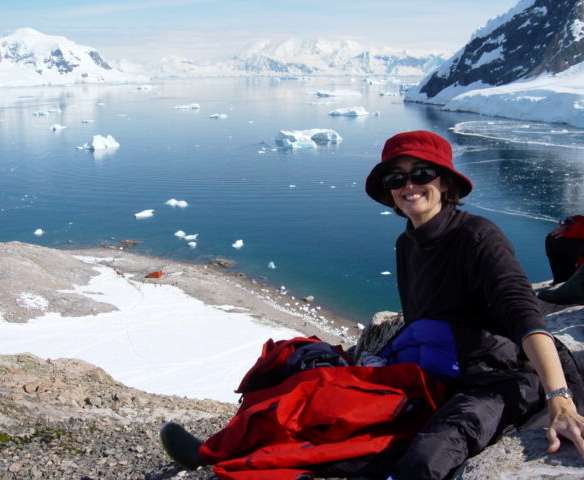
You can also follow her at @DrDebTravelDr
Anyway, she was happy to chat to me about a topic that’s pretty important – health and well being. I’m keen to pick her brains on the more offbeat side of this, so here it is!
Firstly here is a quick video about the subject:
Travel Health Interview with Deb The Travel Doctor
The Travel Tart: Hi Dr Deb, thanks for the chance to chat. I would say that a large chunk of Australian travellers carry your advice in their medical kit when overseas, but for those who aren’t that familiar with you, what’s your couple of paragraphs description about yourself?
Dr Deb: I love travel and I love being a doctor. For over 20 years I have been lucky to combine these two passions at work. I love working in travel medicine because I can make a difference to travellers experiences of the planet, and it is such a great planet – although it is taking a bit of a hammering at present. The best part of my job is when my travellers come home and tell me everyone else on the trip got sick but they did not – because they had done all the right things!
When I graduated, no-one used the term ‘ travel doctor’. I remember at medical school, we only had a few sentences on Travel Medicine. One of my best subjects was parasitology – I have a great respect for the world’s worms.
This is a hook worm
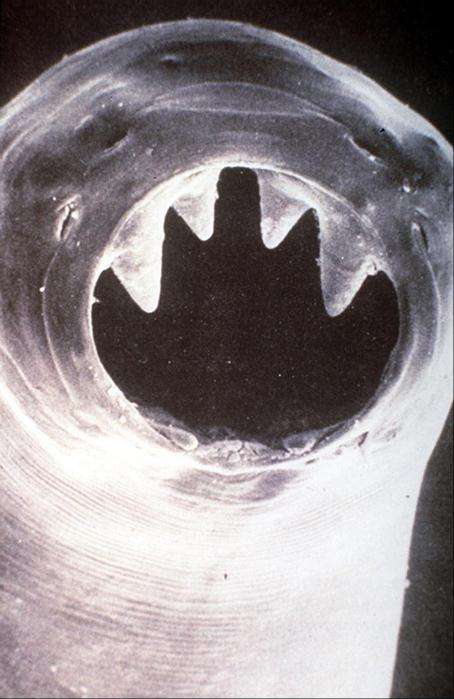
I have undertaken many courses and conferences etc since then. Its a funny thing – I don’t think people expect their family doctor to have had pneumonia, in order to be able to treat it, but it is very important that travel doctors understand about travel in order to give the best practical advice to their travellers. Plus..I have to travel in my job, or I think I would get too jealous of my patients.
The Travel Tart: In my travelling experience, the vast majority of ailments that could possibly occur never usually do, but it’s always good to be prepared just in case. For example, I’ve come across people who have walked into a puddle of boiling mud in Indonesia, so I guess she didn’t see that coming! But if you look at the media, there’s always death and destruction travel warnings if you decide to go overseas (which really annoy me!). What’s your pragmatic view of travel health? That is, what’s the real story?
Dr Deb: Yes there is a real extremism about travel stories – from the glossy brochures that mention only the positive to the scare stories where some unsuspecting traveller has died. However, gore and pestilence is so compelling that it sells papers (or clicks in today’s terms.)
I think the real story is … like much in life …there is a balance in the middle. Take precautions, have the shots, carry a medical kit, and insurance, but don’t get overly paranoid. The evidence is you are safer overseas – the death rate in travellers is lower than the death rate in persons staying home (Which its a great statistic for parties but it is likely true because the more healthy persons travel and the sicker persons tend to stay home.)
This was something I saw that graded trips from …A vacation with Grandma to ….It could be your last trip… in terms of likelihood of death.
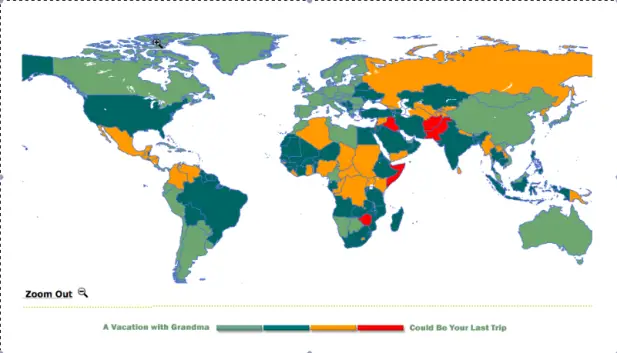
The Travel Tart: Woo hoo, I’ve got quite a few dark greens, a couple of yellows, and even a red from the above map! I mustn’t read the travel alerts that often! I know you can’t mention specifics (ie. names etc) when it comes to individual cases, but if I hypothetically asked you what’s the worst case of a travel disease/injury you’ve seen from someone who was woefully unprepared for overseas travel, what would be your hypothetical answer?
Dr Deb: Research confirms more than 3 out of 5 Australians (The Travel Tart: and probably the rest of the world) don’t seek health advice before trips . The attitude is ‘She’ll be right‘ – “Why bother with shots …I know lots of people who go there they seem OK, especially if it is ‘just‘ a resort trip“. They are right in one respect …not everyone gets sick – but if you do get sick and it is really bad – You can’t get another body. Its a bit like those penguins you see on an ice floe and one of them gets taken by the seal -…who wants to be the one?
Woeful preparation is very common. Take jigger fleas…eg I saw a lady who returned from Africa with a jigger flea embedded in her toe, that I had to dig out. She would not have got this little hitch hiker if she had worn closed shoes. Then there are the really tragic preventable cases; like the 11 year old girl who died of a vaccine preventable disease (Japanese encephalitis ) after a short trip to the Philippines.
Woefully prepared travellers do not understand about about even the simple things like travellers diarrhoea. I tell my travellers I almost guarantee people will spout rubbish about travellers diarrhoea. For example; Travellers are told “ let it run its course” or “ take charcoal tablets” or even “drink red cordial”. Woefully prepared travellers do not understand that there are really effective diarrhoea pills available.
If taken within about 6 hours of onset of symptoms they often fix the diarrhoea. Certainly its not common to have ongoing gastro, but 3% of people with bad travellers diarrhoea will have persistent problems for months.
If you don’t take the right treatment at the time of the illness, the bowel may be damaged and takes ages to get back to normal. Why suffer unnecessarily? Take a kit. My frequent travellers love their kits, they regularly return to have them replenished. I love hearing the stories…
- My wife had terrible gastro – I thought we would have to put her in hospital, we took your pills and she was on the mend in 5 hours and well the next day.
- My friend sneered at my kit, but when he got sick, he begged me for the pills.
- We had some doctors on the trip and they looked at the kit and said it was really neat.
The Travel Tart: Have you come across any ”special” cases that deserved a Darwin award nomination?
Dr Deb: Well this is a story I heard this week, and thankfully the person didn’t quite qualify for the Darwin award but it is a good example of how badly informed some travellers are. First some background; Diamox is a tablet that has strong scientific evidence for helping people to adjust to high altitudes more quickly. One of my travellers went on a trip climbing to Kilimanjaro (5895 m). The Tanzanians make you climb the mountain twice as fast as is recommended- perhaps to access the extra climbers fees. Owing to the rapid ascent, few climbers make it to the summit of Kilimanjaro without some Diamox. My traveller had a a guide, Teddi. Teddi was a swaggering local who said “ those Australian doctors know nothing – I am a local – I have climbed the mountain 50 times, I know what you need – Diamox is bad, Don’t take Diamox – Trust Teddi.” (Teddi is of course well adjusted to the altitude if he has summitted 50 times but his participants are likely not so well acclimatised)
My traveller decided it was none of Teddi’s business what medications he was on, and quietly took the Diamox anyway – many ill informed travellers on the trip did not take the diamox and struggled on, but felt very unwell. One particular lady on that trip was a vet, so fellow travellers assumed she must have known something about the workings of animal bodies at least. This vet’s view of how to cope with altitude sickness was to take Lasix and don’t drink any water. This is a particularly dangerous thing to do. Lasix is a drug used in heart failure when the body accumulates too much fluid. Normal people who take Lasix don’t have any spare fluid to lose even at altitude. Also Lasix leaches Potassium from the body – low Potassium can cause heart arrhythmias and death. (Doctors usually give Lasix with a tablet that has extra Potassium to counter this effect) Not surprisingly, this lady was extremely unwell, so Teddi decided to carry her the last part of the journey to the summit – so he could say all his group got to the top!! I am pleased to report the lady felt so shocking that she decided to decline Teddi’s untrained medical advice and insisted on turning around, and did not die. I believe she certainly would have died if she had not turned around. Sadly, I hear many stories like this of travellers getting terrible advice from locals and other travellers.
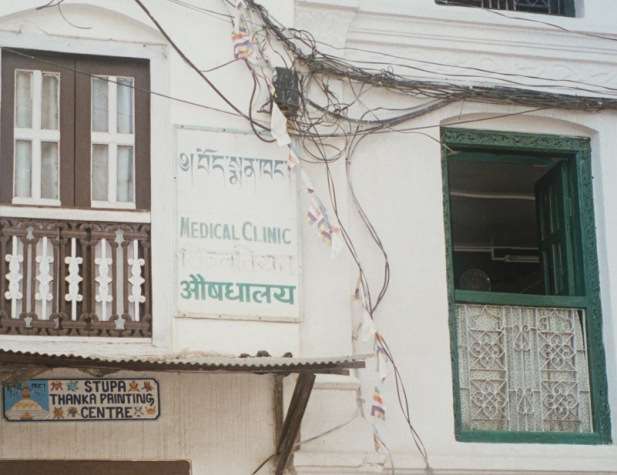
The Travel Tart: I’ll remember to look out for him if I ever have a crack at climbing Kili. About 20 years ago, the motto was ‘If you can’t afford travel insurance, you can’t afford to travel‘. Now it’s like ‘if you can’t afford the snowboarding portion of your travel insurance, you can’t afford to travel’. I know people who never take it out, which I think is a bit nuts. What’s the worst story you’ve come across in regards to where someone became sick overseas and wasn’t covered?
Dr Deb: I think the saddest story is about some ageing parents who sold their house to pay for the evacuation of their backpacking son who had failed to take travel insurance and was in a car accident (that was not his fault) in India. I also had a patient whose insurance ran out one day before he was due to go home. He was hit by a bus while crossing the road and was badly injured in the leg. He could not get on his scheduled flight, so he had to stay in Thailand, pay for his medical care, buy a new ticket home. He could not afford good care and almost lost his leg to infection.
The Travel Tart: Bloody hell, that’s a shocker! (that’s Australian slang for ‘really bad’). Here is my best travel health tip. When travelling overseas, always eat in the places where the locals eat, and where there are heaps of them. I’ve never become sick when following this rule, as I see that if the locals love the place and don’t get sick, then neither will I. For me, I think that it’s the fast turnover of food that hasn’t sat around attracting flies for days that works. What’s your take on this? (note, I’ve only scored food poisoning from a dodgy steak sandwich, in Australia!).
Dr Deb: I think you are right , there is a high turnover of food in that situation that keeps the germ levels low. Also the locals know how to cook their own food. Western food like hamburgers and sandwiches are especially dodgy as they are handled extensively. Typhoid Mary in the early 1900’s would not believe that she was giving typhoid to the people in her household. Many people – including cooks in poor countries – still behave as if the germ theory of disease is a work of fiction.

The Travel Tart: I wrote a satirical piece called ‘Travel Personalities Explained‘ which as a bit of a send up of some of the silly travel characters you might meet on the road. They include a number of personality types that would be more at risk of falling ill overseas. Which ones have you come across? Do you have any extra ones you’d like to mention? ;P
Dr Deb: I don’t know if you include the group I call the crystal people. They are the ones, for example who have been fully vaccinated by their parents, grow, have a child and decide to go and live in Bolivia. They come to me ONLY wanting the compulsory vaccine, yellow fever for their child (compulsory vaccines are designed to stop the locals being infected by the visitors – which is not a big problem when visitors enter Bolivia from Australia). The parents are using crystals and homoeopathic water such to avoid the local diseases like Hepatitis, Malaria, Typhoid, Measles, etc etc . I worry about those children. Kids are 7 times more likely to get typhoid for example.
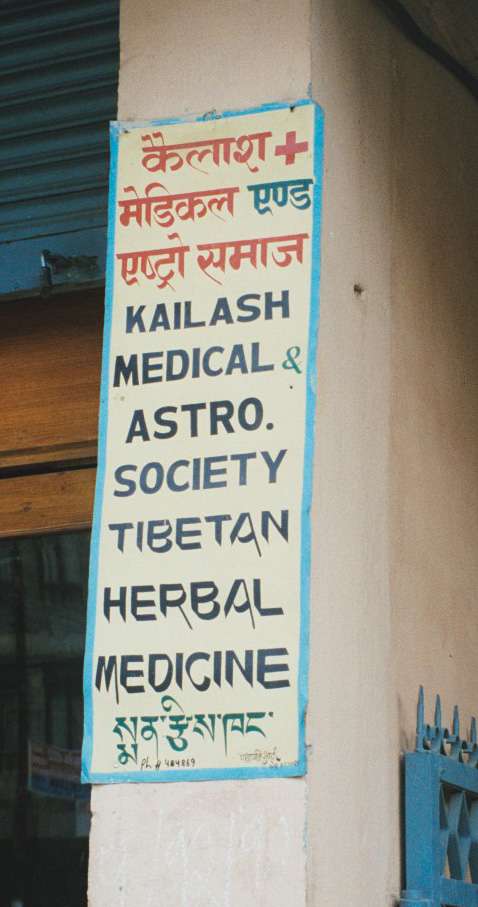
The Travel Tart: Whoa, now you are scaring me! My best, and (probably) worst travel health joke is the following: Q: Did you know that travel diarrhoea is hereditary? A: Because it runs in your jeans… (Boom Boom). You must have a favourite travel health one liner that should easily top this?
Dr Deb: If you look like your passport photo you are too sick to travel.
The Travel Tart: Ha ha, true! That’s gold! Just wondering, have you ever been asked for a diagnosis over Twitter? Nothing would surprise me anymore!
Dr Deb: Not as yet, but it is not uncommon for me to get phone calls asking for a diagnosis of a skin rash.
The Travel Tart: Awesome. And of course, it’s always easy to make a diagnosis with just a verbal description..NOT! You never know, I might just ask you for some advice via a tweet one day! Thanks for the chat Deb and keeping us well informed about travel health! But not about jet lag!
Dr Deb: Great to be part of The Travel Tart Blog, thanks for inviting me.
More Travel Health Stuff:
Here is an interesting infographic to cast your eyes over whenever you are leaving your home country. Just remember to take a travel medicine kit and see if you need any shots!
I know this is specifically regarding Australian travellers, but it’s especially relevant to anyone who travels. They key is to use a bit a common sense, which sometimes, isn’t all that common..
Also, see the worst movies for travellers and my interview with a real life flight nurse who brings people home if they’ve been busted up abroad travelling overseas…

Don’t want to be caught short when travelling overseas? Get a quote on medical cover for Backpackers Travel Insurance! and check out my best Travel Insurance Tips and Coronavirus memes!
Great post! Very eye-opening. Love the travel jokes.
Yeah, I really enjoyed chatting with Deb!
I know this is specifically regarding Australian travellers, but it’s especially relevant to anyone who travels. T